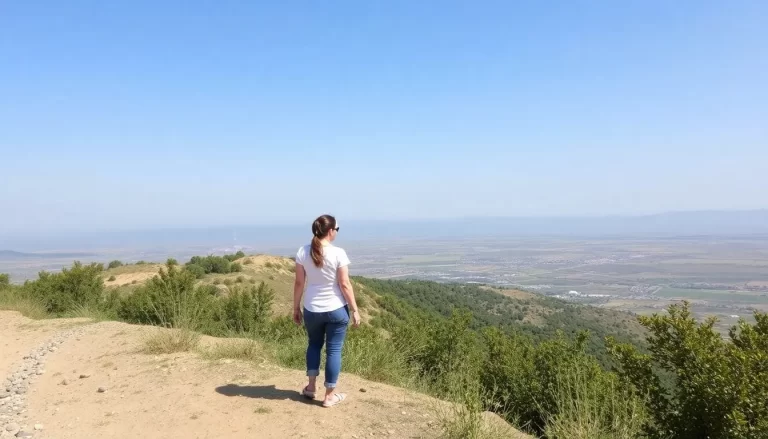Traveling is an enriching experience that allows individuals to explore new cultures, landscapes, and histories. However, the way we travel can differ significantly depending on our preferences and motivations. In this article, we will delve into the distinctions between tourists and backpackers, revealing the nuances that define these two travel styles.
The distinction between tourists and backpackers
The debate surrounding the differences between tourists and backpackers is a familiar one in travel circles. While the terms are often used interchangeably, there are distinct characteristics that set them apart. Tourists typically engage in travel that is more structured and often revolves around comfort and convenience. They tend to favor package deals, guided tours, and popular attractions.
On the other hand, backpackers embrace a more adventurous spirit. They often prioritize budget-friendly options, such as staying in hostels or camping, and prefer to navigate their own itineraries. This group tends to seek cultural immersion and authentic experiences, aiming to interact with locals and learn about their ways of life.
- Tourists: Prefer guided tours and popular attractions.
- Backpackers: Seek budget-friendly accommodations and self-directed itineraries.
- Tourists: Often stick to familiar comforts.
- Backpackers: Embrace spontaneity and exploration.
What defines a tourist?
Tourists are often characterized by their approach to travel. They tend to favor well-trodden paths and iconic landmarks, capturing memories through photographs and souvenirs. While this style of traveling has its merits, it can sometimes lead to a superficial experience of a destination.
Many tourists flock to places like Times Square in New York or the Eiffel Tower in Paris, often overlooking the local gems that provide a deeper understanding of the culture. Common traits of tourists include:
- Reliance on travel agencies for trip planning.
- Preference for hotels or resorts over local accommodations.
- Engagement in activities that are primarily designed for visitors.
Characteristics of backpackers
Backpackers, in contrast, often embark on journeys with a different mindset. They are motivated by a desire to explore the world on their terms, often prioritizing experiences over luxury. This group is known for its resourcefulness and adaptability, frequently changing plans based on recommendations from fellow travelers.
Backpackers typically share certain characteristics, such as:
- Budget-conscious travel, often utilizing public transportation.
- A penchant for staying in hostels or shared accommodations.
- Desire for cultural exchange and local experiences.
Are travelers different from tourists?
While the terms «traveler» and «tourist» are often used synonymously, there is a nuanced difference between the two. Travelers, in a more general sense, seek to explore and discover new places, often delving deeper into the culture and lifestyle of their destinations. They may exhibit traits of both tourists and backpackers, depending on their travel style and the nature of their trip.
Travelers may choose to engage in both structured tours and independent exploration, blending the benefits of both approaches. This flexibility allows them to enjoy the comforts of guided experiences while still seeking authentic interactions with locals.
Why choose to be a traveler instead of a tourist?
Choosing to identify as a traveler rather than a tourist can be more about mindset than method. Travelers often embrace a philosophy focused on exploration and understanding rather than merely visiting a location. The benefits of adopting this mindset include:
- Deeper cultural understanding and appreciation.
- Stronger connections with locals through meaningful interactions.
- A sense of adventure and spontaneity in travel.
By prioritizing these elements, travelers often leave with more enriching memories, having stepped outside their comfort zones and gained new perspectives.
The irony of the backpacker experience
Interestingly, many backpackers who pride themselves on their adventurous spirit may inadvertently fall into similar patterns as tourists. They often frequent popular destinations and engage in activities that align with established backpacker trails. This behavior can sometimes contradict their self-image as adventurous explorers.
This irony raises questions about the authenticity of the backpacking experience. For instance, is spending a month in a country without learning the language or interacting with locals truly immersive? What defines genuine cultural experience if it does not involve a deeper commitment to understanding the local way of life?
Breaking the mold: Travel beyond labels
While the distinctions between tourists and backpackers can be interesting, it is essential to recognize that these labels can be limiting. Travel is a highly personal journey that can encompass a vast array of experiences. The most fulfilling travel often occurs when individuals step outside their predefined categories and embrace a more holistic approach.
Consider the following when planning your travels:
- Be open to new experiences, regardless of whether they align with your usual travel style.
- Engage with locals to gain insights and perspectives that enrich your understanding of the destination.
- Challenge yourself to try activities outside your comfort zone, whether it’s trying local cuisine or participating in community events.
The myth of the «authentic» experience
The notion of an «authentic» travel experience is often romanticized, leading many to believe that there exists a perfect destination where travelers can effortlessly integrate into local life. In reality, every location has its complexities and layers, and no single experience can encapsulate the entirety of a culture.
Traveling with the mindset that there is a specific authentic experience to be found can lead to disappointment. Instead, embracing the idea that every interaction and experience contributes to your understanding of a place will allow for a more enriching journey.
Conclusion: Embrace the journey
Ultimately, whether you identify as a tourist, backpacker, or traveler, the important aspect is the act of exploring new horizons. Each journey brings unique opportunities for growth, learning, and connection. Rather than getting caught up in labels, we should celebrate the diversity of travel experiences and the ways they enrich our lives.







